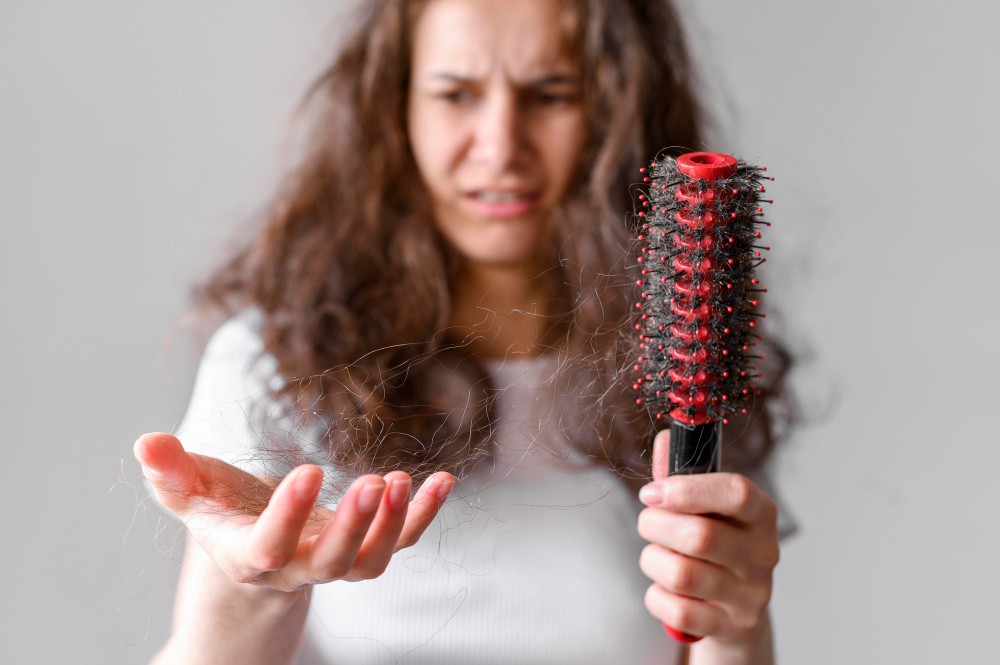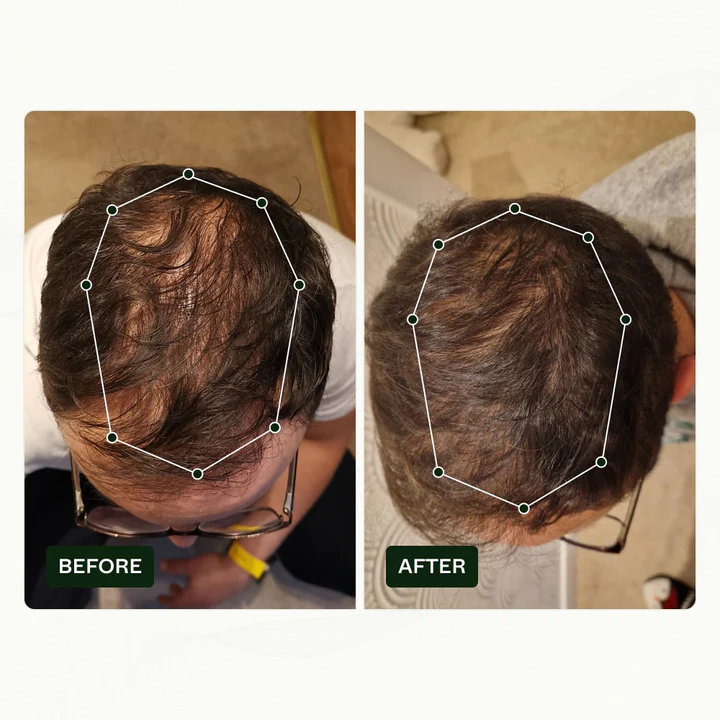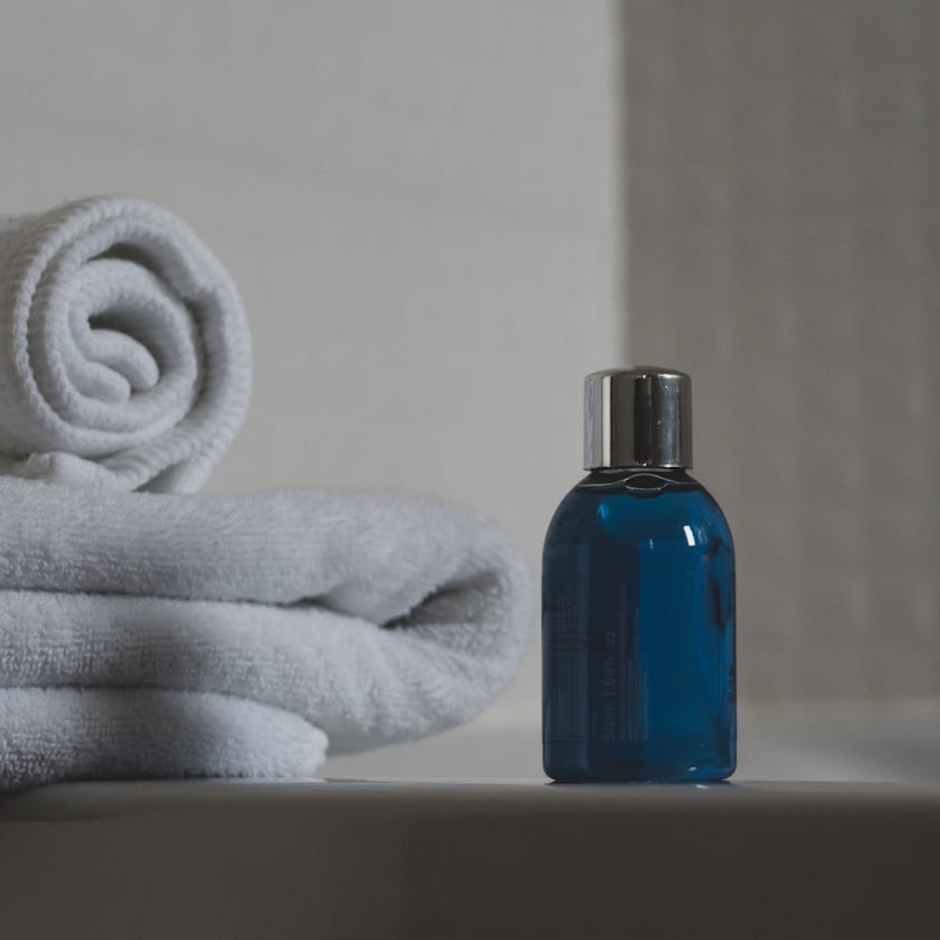Are you wondering if Nizoral shampoo for hair loss can effectively treat hair loss and stimulate hair regrowth?
This article delves into the effectiveness of Nizoral shampoo for hair loss, offering insights and evidence on whether it lives up to its claims.
Keep reading to discover how this popular treatment could be the solution to your hair concerns.
Table of content
What is a Nizoral shampoo?

Nizoral shampoo, a medicated scalp treatment featuring ketoconazole, targets fungal infections like dandruff and seborrheic dermatitis, making it a valuable shampoo for hair loss and scalp health.
It works by reducing the fungus that can cause dandruff and inflammation, leading to improved scalp health and potentially aiding in the reduction of hair loss associated with these conditions.
Beyond its antifungal properties, ketoconazole is also thought to have anti-inflammatory effects and can help to soothe the scalp and reduce flaking and itchiness.
While Nizoral is acclaimed for its success in managing dandruff and seborrheic dermatitis, its efficacy extends to treating hair loss, particularly male and female pattern hair loss, by nurturing hair follicles for significant hair growth.
However, it's primarily recommended for hair loss related to inflammatory scalp conditions rather than as a direct treatment for other types of hair loss, such as genetic hair thinning (androgenetic alopecia).
As your leading source for hair health information over the past 4 years, we never compromise on accuracy. When it comes to your health, you deserve information you can truly rely on - and earning your trust is our top priority.
Here's how Scandinavian Biolabs ensures every piece of content meets the highest standards of accuracy and integrity:
- Credentialed Experts: Our reviewers are actively practicing doctors and medical researchers
- Stringent Reviews: Content undergoes rigorous editing by subject specialists and review by a practicing doctor.
- Evidence-Based: We rely on well-established research from trusted scientific sources like peer-reviewed journals and health authorities.
- Full Transparency: Our editorial standards, writer credentials, reviewer credentials, correction process, and funding are all publicly documented.
- Independent Voice: While we do promote products, we operate in a vacuum to business operations. Our main goal is just an unwavering commitment to providing medically-sound guidance.
You can count on Scandinavian Biolabs to consistently deliver the trustworthy health information you deserve. Read our Editorial Standards.
Does Nizoral shampoo help with hair loss?

Nizoral shampoo, with its active ingredient ketoconazole, may indeed help with certain types of hair loss. Ketoconazole is known for its antifungal properties and its ability to reduce inflammation on the scalp, which can be beneficial for improving conditions that lead to hair loss.
Ketoconazole shampoo, particularly Nizoral, is proven effective in slowing hair loss and stimulating hair growth in conditions like fungal infections or androgenetic (androgenic) alopecia, also known as male pattern baldness or female pattern hair loss.
This hair loss treatment works through ketoconazole's ability to inhibit the 5-alpha reductase enzyme, crucial in converting testosterone to dihydrotestosterone (DHT), thereby slowing male pattern hair loss and encouraging hair regrowth.
The similarity in the mechanism of action between ketoconazole and prescription medications like Finasteride and Dutasteride, which are used to treat male pattern hair loss by preventing the conversion of testosterone to DHT, underscores the potential of Nizoral shampoo as a supportive treatment for hair loss.
What does the clinical evidence say?
The clinical evidence regarding ketoconazole, especially as an active ingredient in Nizoral shampoo, for hair loss treatment is promising, though not entirely definitive.
Research published in 1998 in Dermatology highlighted that 2% ketoconazole shampoo not only enhances hair density but also significantly supports hair follicle health, marking it as an effective topical hair loss treatment akin to topical minoxidil.
Further research in 2004 provided insights into ketoconazole's mechanism, showing its capacity to reduce scalp inflammation, a key factor in male pattern hair loss. This study also found that combining ketoconazole with finasteride, another FDA-approved hair loss medication, resulted in greater efficacy.
Subsequent studies have continued to support ketoconazole's effectiveness in treating hair loss, either as a standalone treatment or in combination with other proven therapies.
These findings suggest that ketoconazole, found in Nizoral shampoo, could be a valuable component of hair loss treatment strategies, particularly for those suffering from conditions like inflammatory scalp disorders or androgenetic alopecia.
Nonetheless, individuals considering this treatment should seek advice from healthcare professionals to tailor the approach to their specific needs.
How to use Nizoral shampoo for hair loss
To optimally utilize Nizoral shampoo for treating hair loss and achieving hair regrowth, ensure you choose a product enriched with ketoconazole, the antifungal medication pivotal for its hair growth-promoting properties. Here’s a simple guide to using Nizoral shampoo:
- Wet your hair: Start by thoroughly wetting your hair with water, and preparing it for shampoo application.
- Apply shampoo: Gently massage the Nizoral shampoo into your scalp, ensuring even coverage. Spend about 100 seconds working the shampoo into a lather to allow the ketoconazole to penetrate the scalp.
- Leave it on: After massaging, leave the shampoo on your scalp for at least 5 minutes, aiming for 10 minutes if possible, to maximize its effectiveness.
- Rinse thoroughly: Wash the shampoo out of your hair completely with water.
- Frequency of use: Repeat this process 2–3 times every week. Consistency is key to achieving and maintaining results.
How often can you use ketoconazole shampoos for hair growth?

For those considering ketoconazole shampoo for hair growth, the optimal frequency of use, based on study participants who experienced positive outcomes, ranges from once every 2 to 4 days.
During each use, it's advised to leave the shampoo on the scalp for 3 to 5 minutes before rinsing thoroughly. Importantly, there's no evidence to suggest that using ketoconazole shampoo more frequently will enhance hair growth results.
It's worth noting that while ketoconazole shampoo, available in both 1% and 2% formulations, has been studied for hair growth benefits, only the 2% concentration might offer stronger efficacy in treating hair loss.
However, because ketoconazole shampoo is not FDA-approved specifically for hair loss treatment and is not marketed for this purpose, its use for hair growth is not officially recommended.
Before starting treatment with ketoconazole shampoo for hair loss, consulting with a healthcare provider is crucial.
They can provide personalized advice and suggest the most appropriate treatment options based on the latest research and your individual health needs.
How much Nizoral should you use to regrow hair?

For effective hair regrowth, it's important to use Nizoral shampoo in moderation, as applying it too liberally or frequently may not enhance outcomes and could potentially dry out your hair. Specifically, aim to use a version of Nizoral shampoo that contains 2% ketoconazole for optimal results.
A moderate amount, typically the size of a quarter for each application, is sufficient to cover the scalp and hair adequately.
This should be massaged into the wet scalp and hair, left for 3 to 5 minutes to allow the active ingredient to work, and then rinsed off thoroughly.
Using it once every 2 to 4 days, as suggested by some studies, strikes a balance between effectiveness and minimizing potential dryness or brittleness of the hair.
What are the side effects of using Nizoral shampoo?
While Nizoral shampoo is generally safe for most users, some may experience side effects, including:
- Changes to hair color and texture: Users might notice alterations in their hair's appearance and feel.
- Itchy, burning, or irritated scalp: These sensations can occur if the scalp reacts negatively to the shampoo.
- Hypersensitivity to the scalp: Some individuals may develop an increased sensitivity to touch or products.
- Dry skin: The scalp and surrounding areas may become dry and flaky.
- Alopecia: In rare cases, users may experience increased hair loss.
- Allergic reaction: Symptoms such as hives and/or rash could indicate an allergic response to the shampoo.
- Anaphylaxis: Though extremely rare, this severe allergic reaction requires immediate medical attention.
Does Nizoral cause hair thinning?
While alopecia, or hair thinning, is noted as a potential side effect of Nizoral shampoo, instances of Nizoral-induced hair loss are quite uncommon according to the available research literature.
This rarity is underscored by a study where all participants expressed willingness to continue using ketoconazole shampoo indefinitely, highlighting its general acceptability and perceived benefits.
Nevertheless, it's important to recognize that, in some cases, Nizoral shampoo could potentially lead to hair thinning or exacerbate existing hair loss.
This may be attributed to telogen effluvium, a form of temporary hair loss often triggered by stress on the scalp. While this condition is usually reversible, it can cause considerable concern during its occurrence.
If you notice an increase in hair loss after starting Nizoral, it's advisable to discontinue use and consult a healthcare professional.
Alternatives when Nizoral shampoo fails to address hair loss
When Nizoral shampoo doesn't effectively address hair loss, there are several alternative treatments and products available to help reduce hair loss and promote hair growth:
Bio-Pilixin Serum

Developed by experts, the Bio-Pilixin Serum is designed to combat hair loss and support hair growth. Utilizing plant growth factors developed through stem cell technology, this serum aims to nurture the hair follicles and stimulate hair regrowth.
It has been clinically tested, with results showing a reduction in hair loss and encouragement of new growth within as little as 45 days.
Finasteride
Finasteride, a DHT blocker, is highly effective for treating male pattern baldness. It's one of the most popular treatments for hair loss, available as oral tablets to be taken daily.
Known by the brand name Propecia among others, Finasteride has a strong track record of reversing the effects of hair loss.
Minoxidil
Minoxidil is available as a topical or oral treatment and can be used to address multiple types of hair loss. It works by stimulating hair growth and is effective for both men and women.
Caffeine shampoo
Caffeine shampoos, like Alpecin, claim to reduce hair loss through the application of topical caffeine solutions. With a mix of anecdotal and study-backed evidence, caffeine shampoo is touted as a non-invasive option for combating hair loss.
Low-level laser therapy
This treatment involves the use of lasers directed towards the scalp to stimulate cellular activity and promote hair regrowth. It's a non-invasive therapy that has gained popularity for its effectiveness in treating certain types of hair loss.
PRP
PRP therapy involves injecting platelet-rich plasma into the scalp to encourage hair growth. This innovative treatment uses the patient's own blood components to stimulate hair follicles and promote regrowth.
Hair transplant
A hair transplant is a surgical procedure where healthy hair follicles are transplanted to thinning or balding areas of the scalp. It offers a long-term solution to hair loss, with results that can look very natural when performed by experienced professionals.
Conclusion
Nizoral shampoo, with its active ingredient ketoconazole, presents a viable option for those battling hair loss associated with fungal infections or androgenetic alopecia.
While its effectiveness is supported by clinical evidence, and it has been shown to improve hair density and reduce inflammation, it's not a one-size-fits-all solution.
For individuals not achieving significant hair growth with Nizoral, or those seeking alternative hair loss treatments, a wide range of options including other OTC dandruff shampoos, hair growth serums, and hair loss treatments are available.
Among these alternatives, Scandinavian Biolabs offers the Bio-Pilixin Serum, a product designed using advanced stem cell technology to nurture hair follicles and stimulate hair regrowth.
This serum, alongside other treatments such as Finasteride, Minoxidil, caffeine shampoos, low-level laser therapy, PRP therapy, and hair transplants, provides a range of options to address hair loss.
Each treatment has its own set of benefits, and what works best will depend on the individual's specific condition and needs.
FAQs
How quickly does Nizoral start working for hair loss?
Nizoral begins to work from the first use, with visible results possible in just 2 weeks when used twice a week.
Can using Nizoral shampoo every day cause side effects?
Answer: While side effects from ketoconazole shampoos like Nizoral are uncommon, using the shampoo daily may increase the risk of scalp irritation.
What is the recommended usage of Nizoral 2% for treating hair loss?
For hair loss treatment, it's recommended to apply Nizoral (ketoconazole) 2% shampoo 2–3 times per week, scrubbing it into the scalp for 100 seconds and leaving the foam on the scalp for 10 minutes before rinsing.
References:
Read more:






